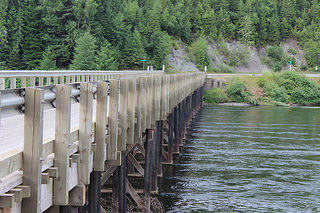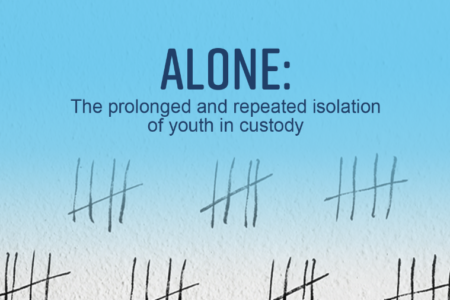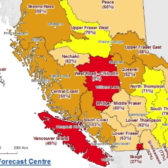Mt. Polley tailings pond update
Government and Cariboo Regional District (CRD) officials continue to work together to address and investigate the breach at the Mount Polley tailings pond, to continue testing local water samples, to help ensure the safety and well-being of local residents, and to assist with recovery efforts in the region.
Please note, this will be the last regular factsheet update. Investigations and regular water sampling and testing will continue, and any new and important information will still be communicated to the public as needed via news releases or other methods.
Local MLAs, the Conservation Officer Service (COS), BC Parks and Ministry of Environment (MoE) staff will continue to deliver and post information packages in Likely to update residents on the current situation as new information becomes available. This can be found in a number of locations, including the Valley General Store, Canada Post Office bulletin board, Likely Lodge Diner, Cedar Point Provincial Park bulletin board and the museum.
New Friday, August 15
- Water samples taken on Aug. 10, 2014, from Quesnel Lake near the mouth of Hazeltine Creek have been tested and confirm all samples continue to meet provincial and federal drinking water guidelines.
- Additionally, rainbow trout toxicity test results show water collected from Quesnel Lake near the mouth of Hazeltine Creek on Aug. 5 and 6 was not toxic to rainbow trout.
- Test results are expected this weekend from MoE water samples obtained from the discharge point of Polley Lake into Hazeltine Creek, as well as results from sediment samples collected from the tailings pond breach area and Hazeltine Creek.
- Residents and local businesses in Likely and the surrounding area are on the road to recovery, particularly with the removal of the majority of the drinking water advisory. In spite of the tailings pond incident, the Cariboo region boasts world-class attractions and outdoor experiences. Many people in the area have their own story to tell, some of which are highlighted here: https://www.flickr.com/photos/bcgovphotos/sets/72157646376255866/
Current situation:
- On Aug. 12, Interior Health (IH) further rescinded the ban on drinking water. The “Do Not Use” order now only remains for the impact zone directly affected by the breach, which includes Polley Lake, Hazeltine Creek, and an area within 100 metres of the shoreline sediment deposit where Hazeltine Creek runs into Quesnel Lake. This remaining advisory is expected to stay in place indefinitely. **Note: boiling will not help**
- The flow out of the breach has decreased dramatically, but has not completely stopped. Imperial Metals continues its work to build a temporary dike to stop flow out of the pond.
- Imperial Metals continues to pump water out of Polley Lake both down Hazeltine Creek into Quesnel Lake and back into Wight and Springer Pits, two open pits on the mine. By controlling this water release as soon as possible, it will significantly lower the potential risk of another breach. An uncontrolled release of the stored water in Polley Lake could cause additional risks to human health. As well, it could also result in a possible reinstatement of a broader drinking water advisory.
-
The state of local emergency (SOLE) remains in place, giving the CRD exceptional powers in the interest of ensuring public safety. Under the SOLE, the CRD has issued an Order to Restrict Access to the Mt. Polley mine area to help ensure public safety. Authorized mine employees and government officials are exempt. Mt. Polley staff have said they will use their personnel to secure and control entry into the area and restricted access signage has now been posted around the area.
Points that help define this area are located at the north end of Polley Lake, on the Bootjack Forest Service Road, on Gavin Lake Road and two points on the Horsefly Likely Road (Ditch Road). In addition, an area on Quesnel Lake near the mouth of the Hazeltine Creek is also restricted.
- There have been no reports of personal injuries or property damage.
- The portable showers closed on Aug. 12 after the majority of the drinking water advisory was lifted. They will remain closed but will be kept on site for a couple of weeks in the event that the situation changes.
- The cause of the breach is still unknown at this time. MoE conservation officers are investigating the breach. Ministry of Energy and Mines (MEM) mine inspectors also are investigating.
- The Province has established regular briefings with First Nations to ensure they are getting as much real-time information as possible.
- Emergency Management BC (EMBC) and the CRD Emergency Operations Centre (EOC) are working together on response to and recovery of this event, including human impacts. Government resource specialists are in the Likely area to support the EOC in Williams Lake. This team will co-ordinate site-level Provincial response and recovery activities in cooperation with Imperial Metals, the party responsible for site management.
- Mt. Polley Mine staff are assisting waterfront property owners with debris clean up.
- A support team is available to offer local residents emotional support for their unique impacts and coping needs. These trained volunteers provide services to communities affected by emergencies and disasters. The CRD, EMBC and Provincial Health Services Authority are coordinating this effort and will be making more information available to all impacted communities.
- All costs associated with the cleanup of the breach are the responsibility of Imperial Metals, and will not be borne by B.C. taxpayers.
Water sampling:
Samples are taken by MoE staff and sent to an independent lab in Vancouver for testing and analysis.
Water samples taken on Aug. 10, 2014, from Quesnel Lake near the mouth of Hazeltine Creek have been tested and confirm all samples continue to meet provincial and federal drinking water guidelines. As will all previous results, analysis of these samples indicates all results also fall below all BC Aquatic Life Guidelines, meaning there is no expected impact on aquatic life.
On Aug. 12, MoE field staff obtained water samples at the discharge point from Polley Lake into Hazeltine Creek. Sediment samples were also collected from the tailings pond breach area and Hazeltine Creek. The results of these are expected this weekend.
Water samples taken on Aug. 9 from three locations in the Quesnel River and Quesnel Lake have been tested and confirm that all samples, once again, meet provincial and federal drinking water guidelines. These results align with all other samples analysed to date.
Water samples taken by Ministry of Environment staff from the southeast corner of Polley Lake on Aug. 7 and 8 are very close to historical levels taken prior to the Aug. 4 tailings pond breach.
Most of the parameters were below both B.C. and Health Canada Drinking Water Guidelines at these sites with slight exceedances of pH and aluminium, neither of which present any risk to human health, and both of which are consistent with water quality results from Polley Lake since the late 1980s. These results corroborate previous testing done by Imperial Metals.
Sampling will take place in safely accessible locations for the foreseeable future. Test results will be shared with local First Nations, First Nations Health Authority (FNHA), IH, and the CRD. IH will continue to evaluate water samples as they arrive and will update the communities as more information becomes available.
The ministry is posting results on its website, including a map of sampling locations: http://www.env.gov.bc.ca/eemp/incidents/2014/mount-polley.htm
The ministry will continue working with Imperial Metals to develop both short- and long-term plans for further water quality testing. Once sediment sample results are available, the ministry will be able to determine if there is any risk posed by the tailings solids. Long-term monitoring of sediments and identification of any contaminants found in sediment will continue.

























